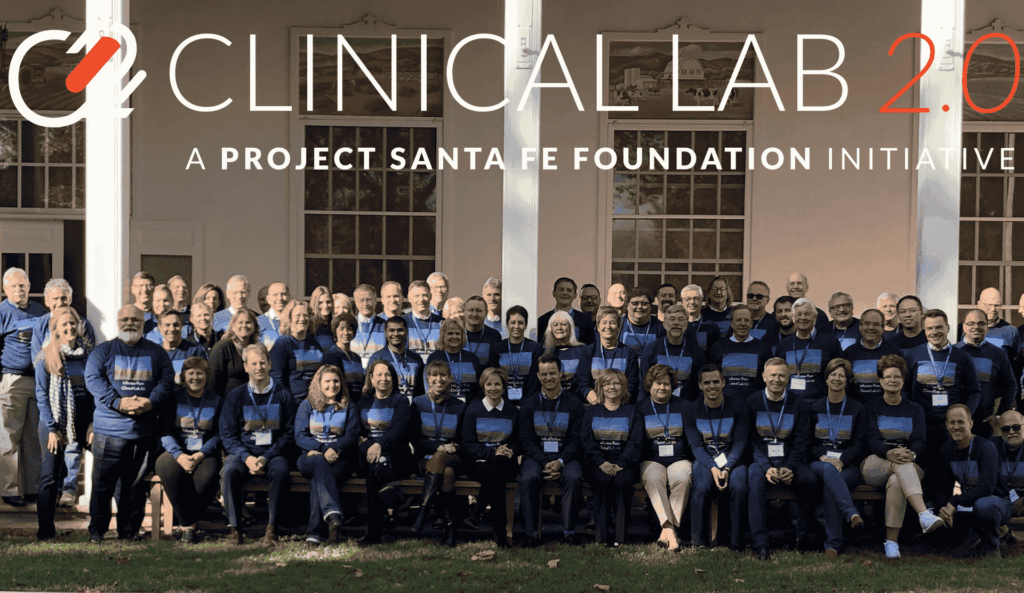“The future belongs to those who believe in the beauty of their dreams.” — Eleanor Roosevelt
In recent years, healthcare has experienced significant transformations. The rise of value-based healthcare emphasizes the importance of improving patient outcomes, reducing costs, and focusing on preventive care. The Project Santa Fe Foundation, with its vision of Clinical Lab 2.0, aims to bring this transformation to laboratory medicine.
What is Clinical Lab 2.0?
Clinical Lab 2.0 is an innovative approach to laboratory medicine that integrates advanced technology, data analytics, and longitudinal patient data to provide clinical and financial insights. It reimagines how clinical labs operate, how they interact with healthcare providers, and how they support patients. The goal is to transform the lab from a transactional, reactive profession focused on diagnostic accuracy to being partners for proactive prediction supporting patient wellness, early disease diagnostics, and monitoring of chronic disease. Ultimately, these activities can contribute to value-based care through reduced healthcare costs and better health outcomes.
The Purpose of Project Santa Fe Foundation
Since its inception in 2017, Project Santa Fe Foundation was founded with a clear purpose: to drive the future of laboratory medicine. By advancing Clinical Lab 2.0, the Foundation is dedicated to developing opportunities and creating evidence to demonstrate where the clinical laboratory is integral to healthcare delivery models. By adopting cutting-edge technologies such as artificial intelligence and data analytics, clinical laboratories can serve as a catalyst in patient care and population health. These innovations can help in predicting health conditions before they become severe, allowing for earlier interventions and improving long-term outcomes both at the individual patient and population level.
Project Santa Fe Foundation aligns closely with the goals of value-based healthcare. Instead of focusing solely on the volume of services provided, value-based healthcare emphasizes quality outcomes for patients. Clinical Lab 2.0 plays a pivotal role in this model by ensuring that diagnostic tests are not only efficient but also provide meaningful insights that lead to better treatment decisions. This approach can reduce healthcare costs by promoting preventative care, identifying high-risk population groups, and supporting adherence to care management guidelines.
Driving Change in Laboratory Medicine
Through its commitment to Clinical Lab 2.0, the Project Santa Fe Foundation is re-defining the boundaries of what’s possible in laboratory medicine. The Foundation supports collaboration between laboratories, industry, healthcare providers, and technology developers to create an ecosystem where the laboratory is an active participant in patient care, not just a support function. The Foundation is about creating a future where clinical labs are smarter, more efficient, and aligned with the needs of patients.
The vision of the Project Santa Fe Foundation is ambitious, but its potential impact on the healthcare system can be profound. By embracing the principles of Clinical Lab 2.0, the Foundation aims to transform laboratory medicine into a key component of value-based healthcare. Clinical Lab 2.0 could set the stage for a healthier and more sustainable future with improved diagnostics, better patient outcomes, and a focus on efficiency.
The Project Santa Fe Foundation is not just looking to improve laboratory practices, it is shaping the future of healthcare itself.

